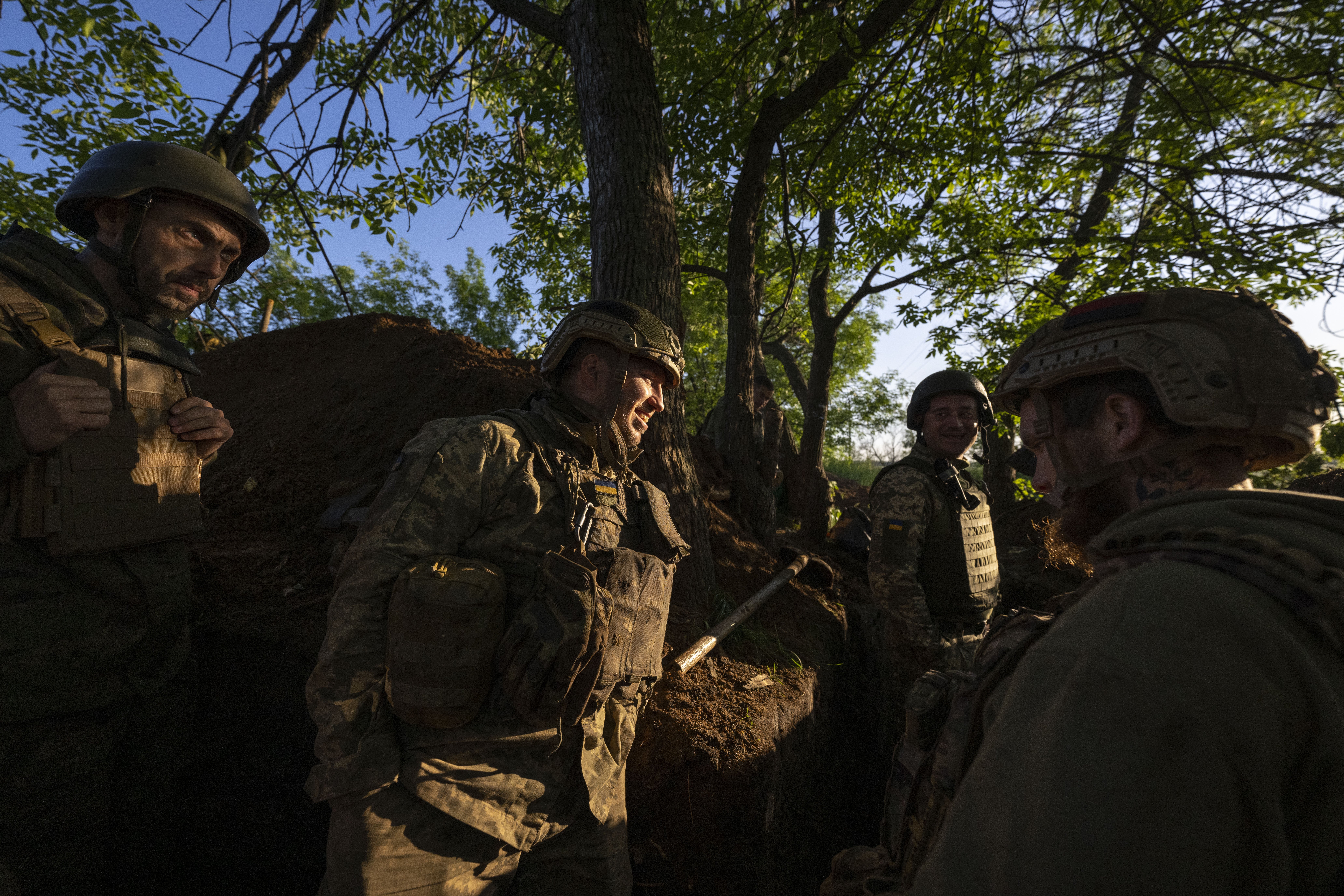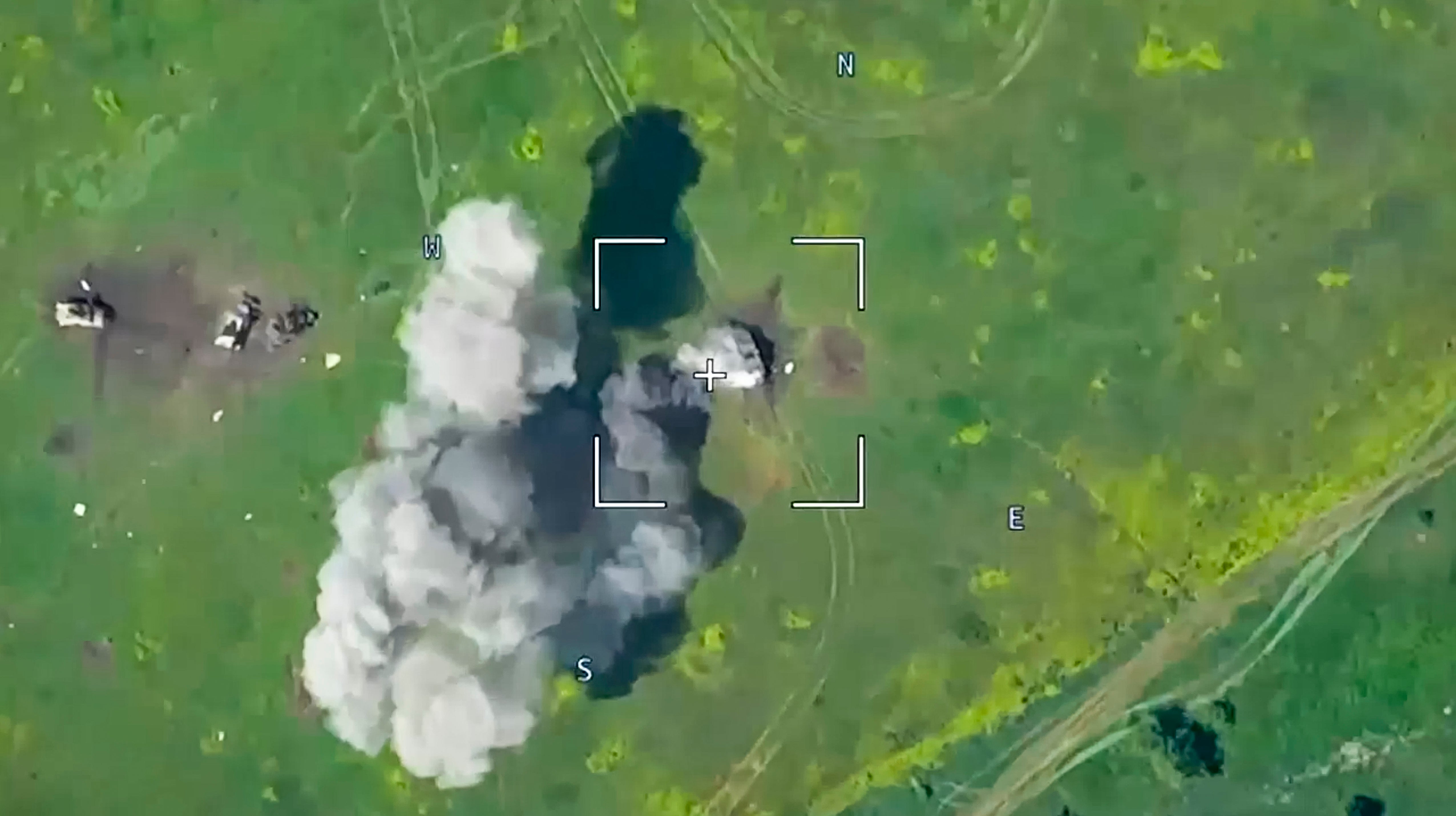Ukraine steps up attacks across frontline – suggesting its counteroffensive is kicking into gear
Kyiv plays coy about start of push to retake its territory from Russia, but denies Moscow’s claims to have repelled assaults

Your support helps us to tell the story
From reproductive rights to climate change to Big Tech, The Independent is on the ground when the story is developing. Whether it's investigating the financials of Elon Musk's pro-Trump PAC or producing our latest documentary, 'The A Word', which shines a light on the American women fighting for reproductive rights, we know how important it is to parse out the facts from the messaging.
At such a critical moment in US history, we need reporters on the ground. Your donation allows us to keep sending journalists to speak to both sides of the story.
The Independent is trusted by Americans across the entire political spectrum. And unlike many other quality news outlets, we choose not to lock Americans out of our reporting and analysis with paywalls. We believe quality journalism should be available to everyone, paid for by those who can afford it.
Your support makes all the difference.Ukraine has launched attacks at a number of points across the frontline with Russian forces, suggesting that its long-awaited counteroffensive is finally kicking into gear.
Officials in Kyiv were coy about the surge in military action, allowing the fog of war to cloud whether it marked the start of a push to reclaim land that Russia has occupied. Ukraine’s deputy defence minister Hanna Maliar said that the country’s forces were “shifting to offensive actions” in some areas, but sought to play them down as “local attacks”. However, there is no denying the increase in military activity.
Moscow seemed keen to suggest that it had repelled a “major offensive” at five points across the eastern region of Donetsk. However, its claims were undermined by other Russian sources and military bloggers, who suggested that Ukrainian forces had made advances around the city of Bakhmut in northern Donetsk and villages in the west of the region.
Ukrainian officials dismissed claims by Russia’s defence ministry that Russian forces had killed hundreds of Ukrainian troops and destroyed a number of military vehicles around Donetsk as fanciful. The statement from Moscow said that Kyiv’s “goal was to break through our defences in the most vulnerable, in its opinion, sector of the front”. In response, a Ukrainian military spokesperson said: “We do not have such information and we do not comment on any kind of fake.”
Ms Maliar said Moscow’s assertions about a Ukrainian counteroffensive were meant to distract attention from the losses Russia is taking around Bakhmut – a city that has seen some of the fiercest fighting of the war so far, and one that the Wagner mercenary group claimed to have taken control of last month before handing its positions to Russian troops.
Ms Maliar said Bakhmut was the “epicentre of hostilities”, while the commander of Ukraine’s ground forces, Oleksandr Syrskyi, said Kyiv’s forces were “moving forward” in the area. The head of Wagner, Yevgeny Prigozhin, said Ukrainian forces had retaken part of the settlement of Berkhivka north of the city, calling it a “disgrace” and claiming that Russian “troops are quietly running away”.
Alexander Khodakovsky, the head of a pro-Russian militia in Donetsk, said Ukraine had made advances in western Donetsk and that German-made Leopard 2 tanks had been spotted on the battlefield – suggesting that Nato-trained troops had also joined the fray.
“The situation in Novodonetskoye and to the left of Veliko Novosilka is difficult – the enemy, pushing at our weak spots, is increasing his efforts. For the first time in our tactical area we have seen Leopards,” he wrote on Telegram.
“There is a tough fight going on,” wrote prominent Russian military blogger Semyon Pegov, who blogs under the name War Gonzo, saying Ukrainian forces were attacking in the area.

American officials have said that the increase in artillery attacks, missile launches and ground assaults suggests that this may be the start of Ukraine’s counteroffensive. Speaking to The New York Times on condition of anonymity, the officials said this assessment was based in part on information from US military satellites, which have detected an increase in action from Ukrainian military positions. The satellites have infrared capabilities to track artillery fire and missile launches.
Ukraine has sought to keep quiet about the location and start of its counteroffensive as it has completed final preparations. Given that the numbers involved in the latest attacks appear to account for only a fraction of the troops Kyiv has claimed to have prepared, they may be probing exercises looking for weaknesses in the Russian lines to then exploit with greater force.
Ukraine’s foreign minister, Dmytro Kuleba, told reporters on Monday that his country has enough weapons for the counteroffensive, with some Western allies having agreed to train Ukrainian pilots on the F-16 fighter jets coveted by Kyiv. “We [already] unlocked all weapons ... There is nothing big left to fight for,” he said. But he also sidestepped the suggestion that the counteroffensive had started, claiming that the most important thing was that it should end in a Ukrainian victory.
Elsewhere, the British foreign secretary, James Cleverly, met with Ukrainian president Volodymyr Zelensky in Kyiv. In a video posted to Mr Zelensky’s Facebook page, Mr Cleverly is heard saying that the UK “will continue backing you and your country until you are victorious”.
The pair discussed how the UK can best continue to support Ukraine, from the battlefield to banking guarantees, according to the Foreign, Commonwealth and Development Office. The UK is preparing to host a conference focused on Ukraine’s economic recovery in London later in June.
The Ukrainian president thanked the UK for the “big support” it has given his country in the social media post, adding: “During the meeting, we discussed important topical issues: Ukraine’s expectations from the Nato Summit in Vilnius [happening in July], promotion of the Ukrainian peace formula and preparation of the global summit on its implementation, as well as the London international conference on the reconstruction of Ukraine.
“We are very grateful for the support that the UK has provided and continues to provide to Ukraine.”
Reuters and Associated Press contributed to this report
Join our commenting forum
Join thought-provoking conversations, follow other Independent readers and see their replies
Comments